 Whether you know him as CliffyB, Dude Huge, or The Guy Who Made Gears of War, game developer Cliff Bleszinski just added another title to his long list of monikers… Memoirist.
Whether you know him as CliffyB, Dude Huge, or The Guy Who Made Gears of War, game developer Cliff Bleszinski just added another title to his long list of monikers… Memoirist.
Bleszinski has been promising for years to pen a book about his life in game development, and it finally became a reality earlier this week with the release of Control Freak: My Epic Adventure Making Video Games. Published by Simon & Schuster, Bleszinski’s memoir will chart his career from teenage programmer through his post-Epic projects, as well as include his thoughts on the games industry of today:
Video games are dominating the planet. In 2020, they brought in $180 billion dollars globally—nearly $34 billion in the United States alone. So who are the brilliant designers who create these stunning virtual worlds? Cliff Bleszinski—or CliffyB as he is known to gamers—is one of the few who’ve reached mythical, rock star status. In Control Freak, he gives an unvarnished, all-access tour of the business.
Toiling away in his bedroom, Bleszinski created and shipped his first game before graduating high school, and at just seventeen joined a fledgling company called Epic Games. He describes the grueling hours, obscene amounts of Mountain Dew and obsessive focus necessary to achieve his singular creative visions. He details Epic’s rise to industry leader, thanks largely to his work on bestselling franchises Unreal and Gears of War (and, later, his input on a little game called Fortnite), as well as his own awkward ascent from shy, acne-riddled introvert to sports car-driving celebrity rubbing shoulders with Bill Gates. As he writes, “No one is weirder than a nerd with money.” While the book is laced with such self-deprecating humor, Bleszinski also bluntly addresses the challenges that have long-faced the gaming community, including sexism and a lack of representation among both designers and the characters they create.
Control Freak is a hilarious, thoughtful, and inspiring memoir. Even if you don’t play games, you’ll walk away from this book recognizing them as a true art form and appreciating the genius of their creators.
Control Freak: My Epic Adventure Making Video Games is now available in stores.
UPDATE (12/9/22): Literary Hub recently shared an excerpt from Control Freak about Bleszinski’s quest to climb the leaderboard in Super Mario Bros.




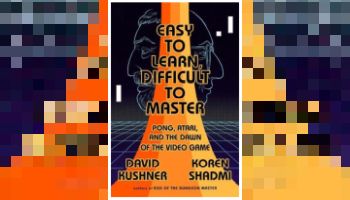
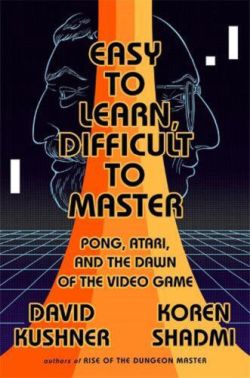 After battling imps and cacodemons on the surface of Mars and confronting gangsters on the streets of Liberty City, David Kushner is ready for his greatest challenge… two paddles and a small dot that represents the ball.
After battling imps and cacodemons on the surface of Mars and confronting gangsters on the streets of Liberty City, David Kushner is ready for his greatest challenge… two paddles and a small dot that represents the ball.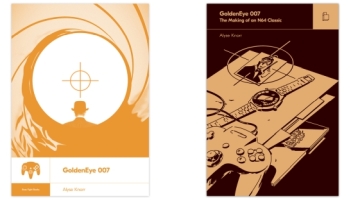
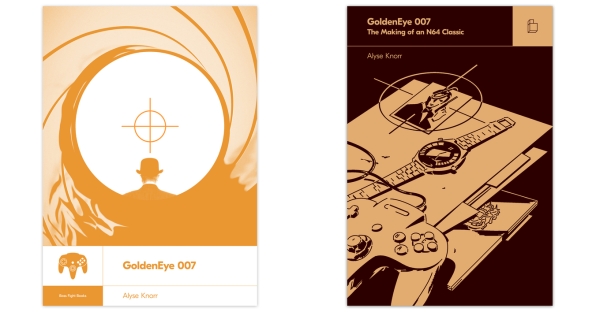 Boss Fight Books will return.
Boss Fight Books will return.
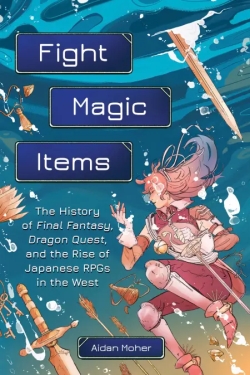 The global recognition of the Japanese RPG can be placed squarely at the feet of Dragon Quest and Final Fantasy, which launched outside of Japan within 12 months of each other in 1989-1990. But interestingly, the genre itself goes back much further than you might realize, and you’d need to take a detour that goes through Sir-Tech’s Wizardry, Koei’s Dragon and Princess, and Tetris to get the full picture.
The global recognition of the Japanese RPG can be placed squarely at the feet of Dragon Quest and Final Fantasy, which launched outside of Japan within 12 months of each other in 1989-1990. But interestingly, the genre itself goes back much further than you might realize, and you’d need to take a detour that goes through Sir-Tech’s Wizardry, Koei’s Dragon and Princess, and Tetris to get the full picture.
 Even though the franchise has flourished for more than 20 years, there’s never been a definitive history written about Pokemon. Daniel Dockery, an entertainment writer who got his start at Cracked, is hoping to change that this October with the release of Monster Kids: How Pokemon Taught a Generation to Catch Them All.
Even though the franchise has flourished for more than 20 years, there’s never been a definitive history written about Pokemon. Daniel Dockery, an entertainment writer who got his start at Cracked, is hoping to change that this October with the release of Monster Kids: How Pokemon Taught a Generation to Catch Them All.
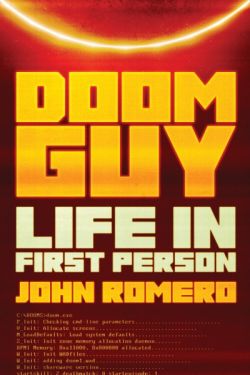 John Romero’s about to make you… listen to his life story.
John Romero’s about to make you… listen to his life story.
 Get over here… and learn more about the release of the next book from David L. Craddock.
Get over here… and learn more about the release of the next book from David L. Craddock.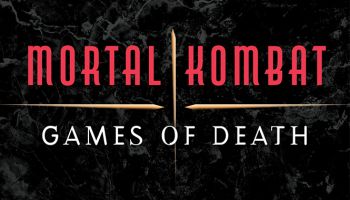


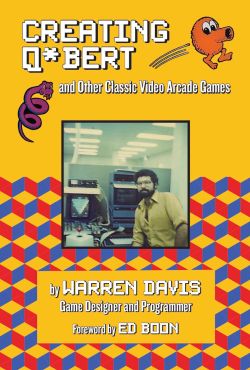 Warren Davis spent two decades in the game industry and he is ready to talk some @!#?@!.
Warren Davis spent two decades in the game industry and he is ready to talk some @!#?@!.